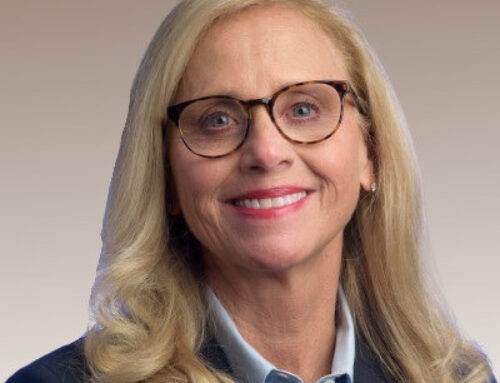TCOG encourages citizens to comment on draft model public records policy
The Office of Open Records Counsel is giving the public a chance to review and comment on a draft of a statewide model public records policy.
A new law requires all government entities in Tennessee to adopt a public records policy by July 1, 2017. [T.C.A. §10-7-503 (g)]. The law also requires the Office of Open Records Counsel, a state agency housed in the State Comptroller’s Office, to develop a model best practices and public records policy that can be used by the government entities.
The deadline for commenting is Dec. 15. Comments and feedback should be sent to [email protected].
The model draft policy is extensive and includes many new guidelines and considerations, including on issues that often have caused disputes between public records requesters and government entities.
The draft policy kicks many decisions on some of the most controversial disputes to the individual government entities — such as whether to allow emailed requests and taking pictures of public records.
Whether or not government entities have authority to adopt rules outside what is allowed by state law is central to a case on appeal in Nashville. TCOG recently argued in an amicus in the case that the Tennessee Public Records Act does not limit the manner in which a citizen may submit to a government entity the citizen’s request to inspect a public record. But Sumner County School Board, which is appealing a trial court’s ruling in favor of requester Ken Jakes, argues it does have authority to set local rules, including requiring requests be sent by U.S. Postal Service.
The draft model policy instructs government entities to indicate in their policies whether public records requests will be accepted by phone, fax, email or through the web. This is not the only place where discretion to create rules is implied. The draft also instructs government entities to choose whether it will or will not allow requesters to make copies of records with personal equipment (such as a phone).
And while the draft best practice guidelines encourage custodians to produce records electronically “when feasible as a means of utilizing the most economical and efficient method of producing records,” it also notes that a custodian is not obligated to provide the record in a format that could be manipulated, such as a data format.
TCOG encourages citizens, nonprofit organizations and journalists who often use the Tennessee Public Records laws to share their perspectives with the Office of Open Records Counsel.
TCOG plans to submit its comments later this week and will strongly oppose language that suggests government entities may create rules that inhibit access to public records, including denying requests sent by email, or banning pictures of public records with a smart phone.
One very important part of the new law that should protect citizens from overreaching rules is a sentence that specifies that policies “shall not impose requirements on those requesting records that are more burdensome than state law…” The legislation was sponsored by state Rep. Bill Dunn, R-Knoxville and state Sen. Richard Briggs, R-Knoxville who said they hoped the law would make the public records request process easier.
Earlier, TCOG provided recommendations to the Office of Open Records Counsel for the model policy that encouraged practices and policies that were citizen-friendly and promoted the fullest possible access to government records. (See full TCOG recommendations here.)
Common public records requests disputes
Among TCOG’s recommendations were several related to common disputes between requesters and government entities. None of these has so far been adopted in the draft model policy.
Email: For example, TCOG recommended that the draft best practices and model policy state that if a government entity regularly uses email to conduct government business, it should allow use of email to receive written records requests and to respond to them.
Open Data: TCOG also recommended that if public records are maintained by the government entity in a machine-readable format, the records should be provided to the requester in that format. For example, if a spreadsheet is maintained by a government entity in Excel or some other similar format, the spreadsheet should be provided to the requester in that format instead of creating a PDF that is less useful and deprives citizens of the benefit of their government’s investment in technology.
Some suggestions by TCOG were incorporated into the model policy.
Prompt response: TCOG suggested an emphasis in the Best Practices and Model Policy on the legal requirement to promptly make a requested record available for inspection.
Citizen identification: TCOG also recommended that the policy adopt a suggestion that, if a government entity requires identification, it allow a student’s college identification card be sufficient.
Advisory opinion process to be altered
The Office of Open Records Counsel is also proposing two new policies.
In the proposed “Informal Advisory Opinion Guidelines,” the office states that it would only issue informal advisory opinions “when it is determined the matter under advisement is broad enough in scope that issuing an informal advisory opinion would provide the public with useful guidance and direction with respect to future inquires regarding Tennessee’s Public Records or Open Meetings Laws.”
The law, T.C.A. 8-4-601(b), states that “the office of open records counsel shall answer questions and issue informal advisory opinions as expeditiously as possible to any person, including local government officials, members of the public and the media…Any opinion issued by the office of open records counsel shall be posted on the office’s website.”
The guideline proposed by the office would instead allow discretion on whether or not to issue an advisory opinion, or whether to issue what the office calls an “advisory comment” instead. Opinions would be posted on the website, but not “advisory comments.”
No advisory opinions have been published on the OORC’s website this year, and only one was posted in 2015.
The second new policy, “Guidelines for Informal Mediation of Open Records Issues” states that the office would informally mediate disputes if both parties mutually consent and provide written statements of the issue in disputes and their positions on the issue.




